Photos: How protests erupted across the country after the death of George Floyd
The protests against police brutality and racism saw violence in many cities.
Protests have broken out across the United States in the days since the death of George Floyd, a black man who was killed while in police custody.
On Monday, Floyd was apprehended by police officers in Minneapolis, Minnesota. One officer, identified as Derek Chauvin, who is white, pressed his knee onto Floyd's neck for nearly nine minutes while Floyd repeatedly stated that he couldn't breath.
Since Tuesday night, people have been showing up to demonstrate in Minneapolis, calling for justice against the officers involved in the apprehension, and in particular for the officers involved in the incident to be arrested and charged with murder. Those four officers were fired early in the week.
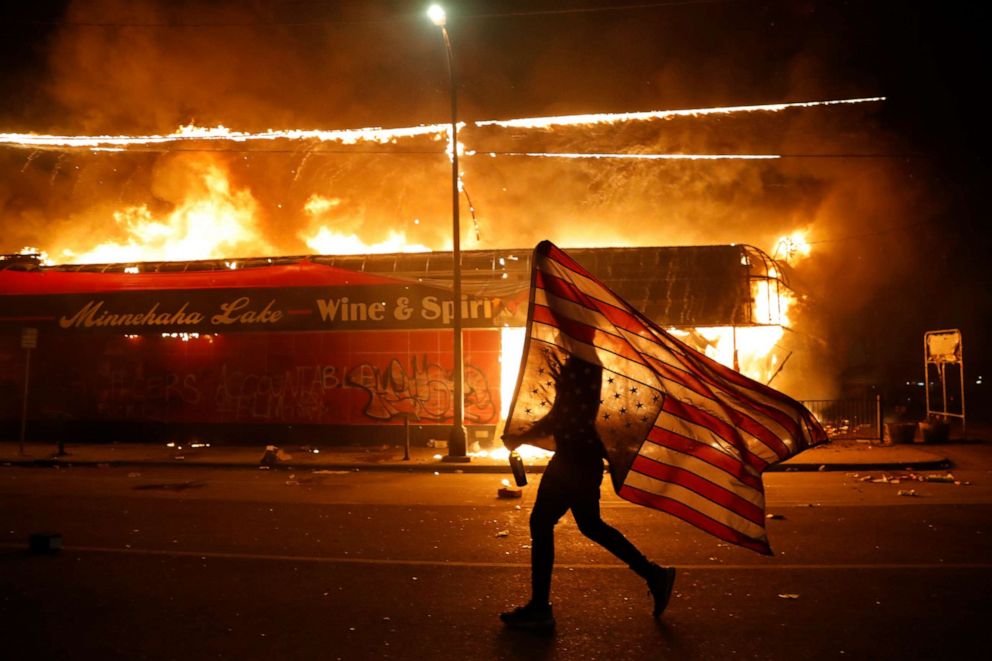
On Friday, Chauvin was charged with third-degree murder and manslaughter, the Hennepin County Attorney Michael Freeman announced.
Many demonstrators celebrated the development, but mourning for Floyd, as well as other unarmed black people killed in recent months, continued across the country. Floyd's niece, Gabrielle Thompson, was present for demonstrations in Houston, where Floyd spent most of his life.
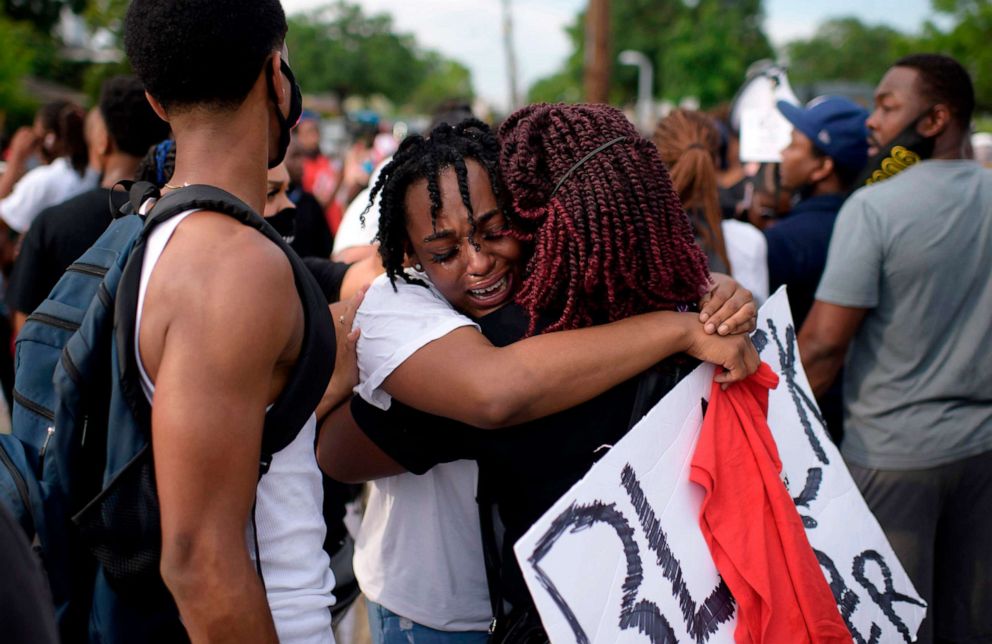
The charges against Chauvin did not quell protests around the country, however. The National Guard had been activated in Minnesota on Thursday, and many other states followed suit into the weekend.
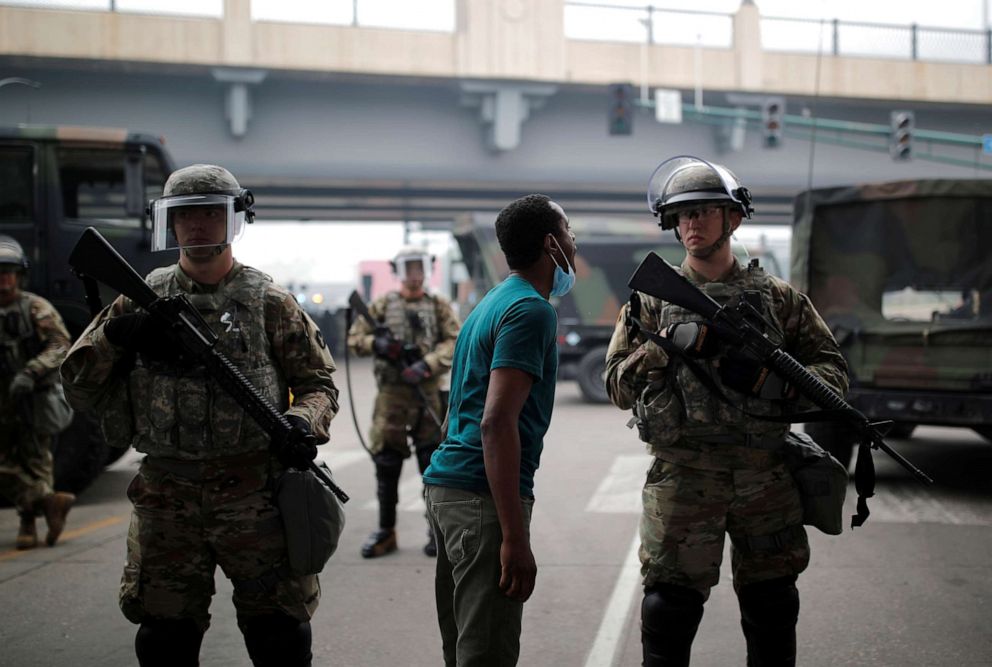
For many, the demonstrations were about more than Floyd himself. In general, protesters called for an end to police brutality, especially against black people, as well as an end to racism.
In Chicago, like in many cities, the mayor announced a curfew on Saturday night.
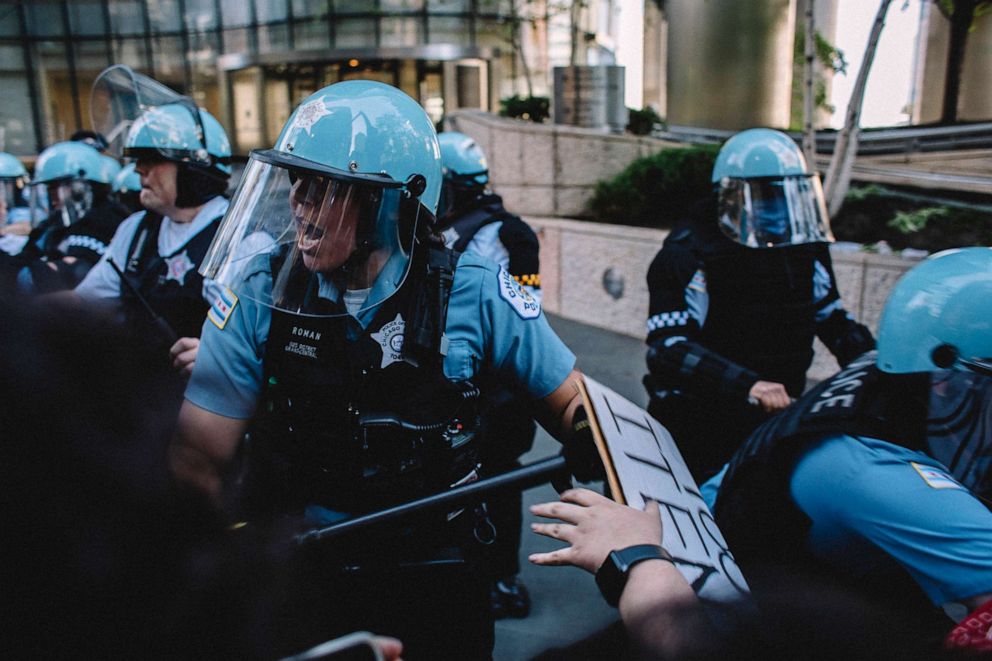
In cities across the country, police in riot gear clashed with protesters. In some locations, looting and property destruction broke out, although in many cases it was unclear who started those actions or how they started.
States of emergency, curfews and National Guard activation have been made by officials in many states.
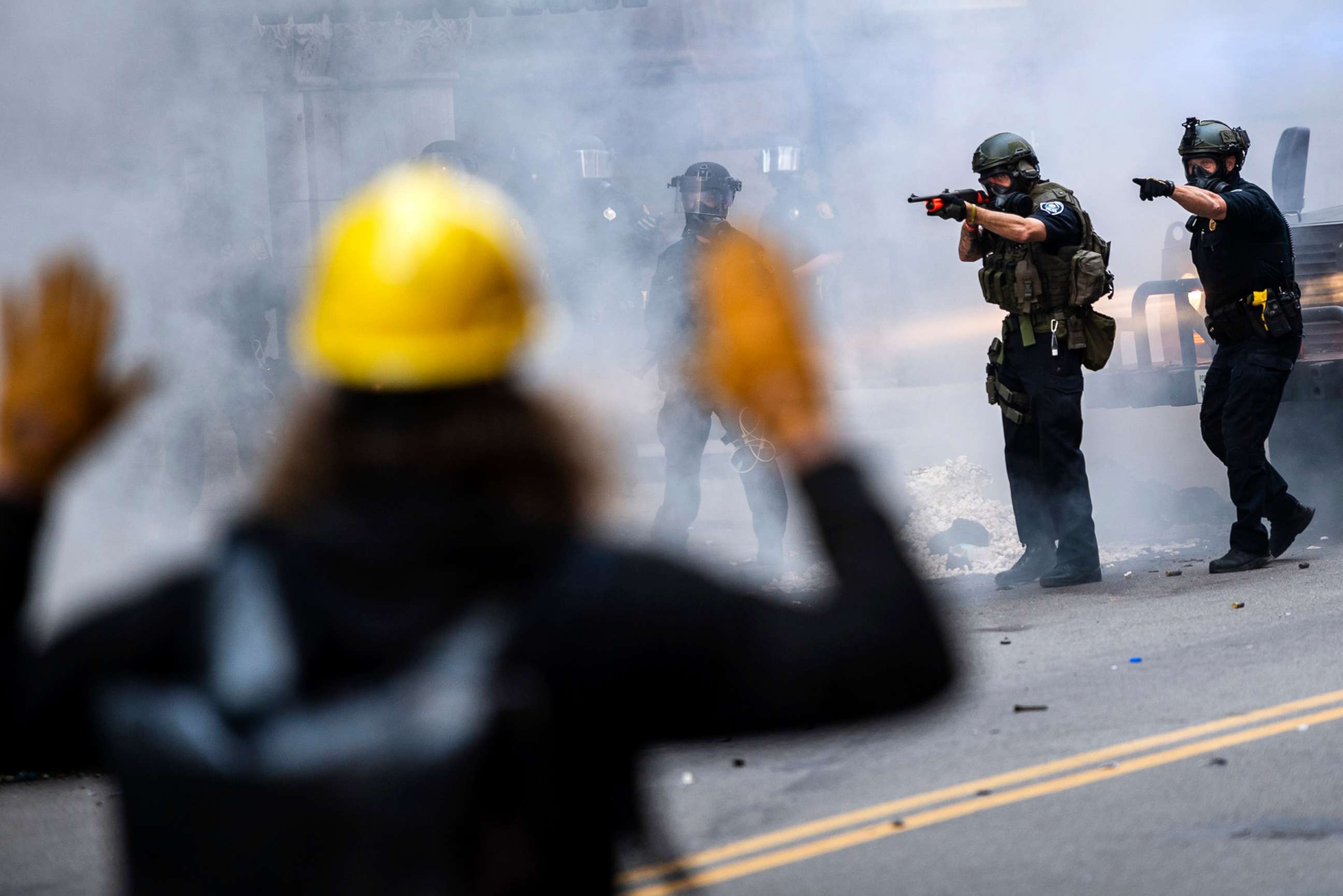
Protests also emerged outside of the White House, where President Donald Trump's tweets about the protests have been controversial as he has been accused of promoting strict police and military response, including one posting flagged by Twitter, which used a phrase from a dark page of American history, for "glorifying violence."
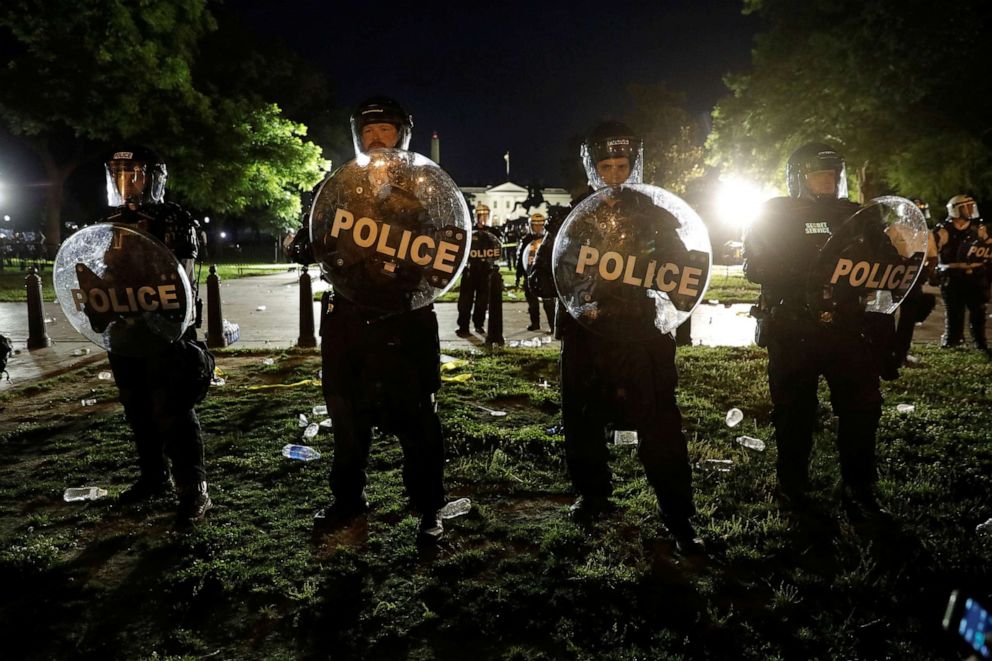
While many businesses were damaged, demonstrators also turned their attention to police equipment. In New York City, an estimated 1,500 people demonstrated in Brooklyn on Saturday night, and several police cars were set on fire.
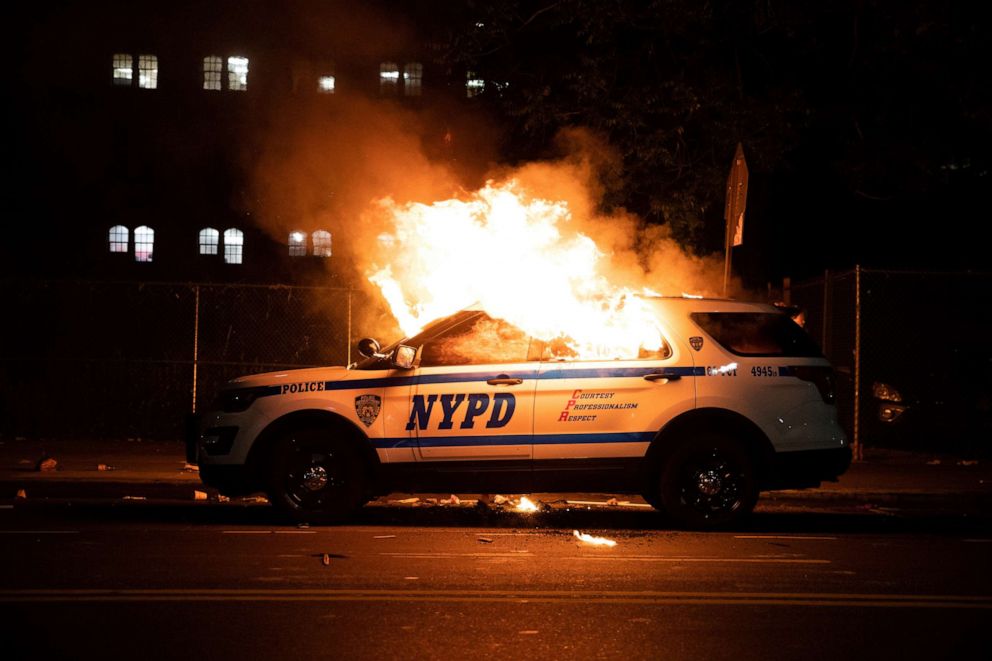
Across the country, many people were arrested in the course of the protests. In total, almost 1,700 people were arrested across 22 cities in three days.
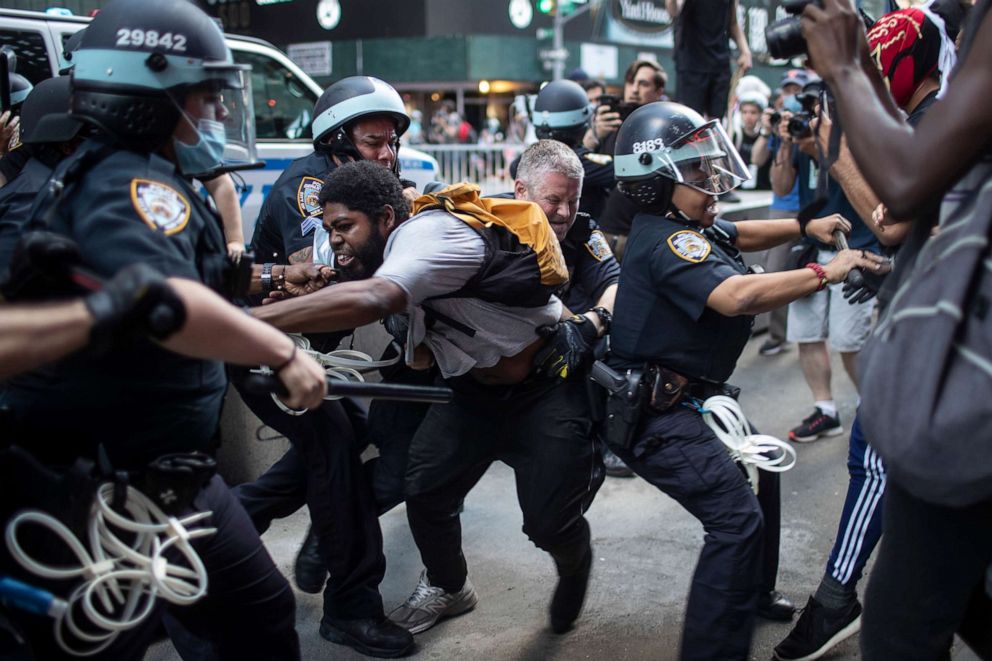
By Sunday morning, cities across the nation were left reeling, facing property damage, looting and graffiti.
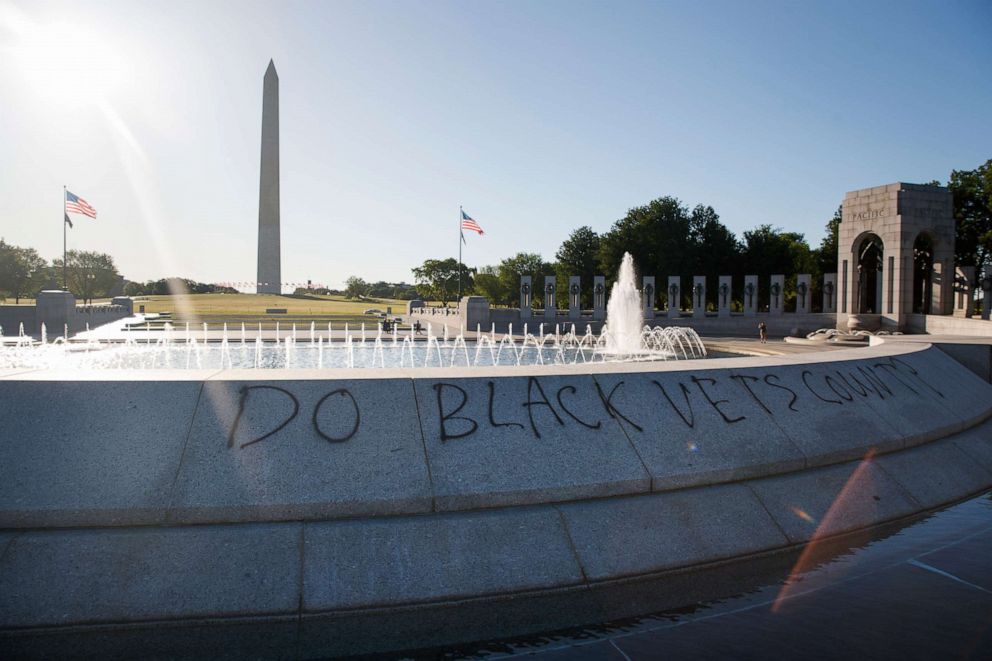
But emotional scars are present as the smoke clears -- in some cases literally, as many fires were lit -- as racism remains a major issue in the U.S. and beyond. Cities are preparing for more demonstrations into the new week, as people continue calls to be heard.




